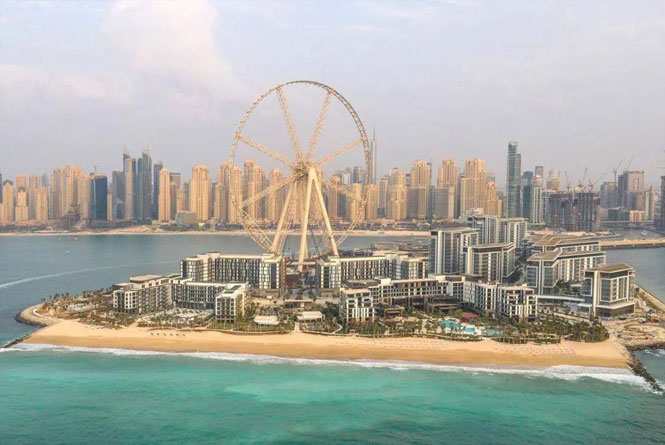Establishing a business in the United Arab Emirates (UAE) offers immense opportunities, and the FZE company register process is a cornerstone for entrepreneurs seeking 100% foreign ownership within the UAE's dynamic Free Zones. A Free Zone Establishment (FZE) is a popular and distinct legal entity designed to attract foreign investment. Understanding the FZE company register procedure is crucial for navigating this pathway successfully. This comprehensive guide delves into the key aspects you need to know.

Before diving into the FZE company register specifics, grasping the fundamental nature of an FZE is vital.
Sole Shareholder Entity: An FZE is defined by its structure – it is a Limited Liability Company (LLC) owned entirely by a single shareholder. This shareholder can be an individual or a corporate entity.
Limited Liability Protection: Crucially, the shareholder's liability is limited to the capital invested in the company. Personal assets are generally protected from business debts and obligations, a significant advantage of the FZE company register.
Free Zone Jurisdiction: An FZE operates exclusively within the legal and geographical boundaries of a specific UAE Free Zone Authority (FZA). Each Free Zone (e.g., Jebel Ali Free Zone - JAFZA, Dubai Airport Free Zone - DAFZA, Sharjah Airport International Free Zone - SAIF Zone, Ras Al Khaimah Economic Zone - RAKEZ) has its own regulations and FZE company register procedures, though core principles remain consistent.
Purpose-Built: FZEs are ideal for businesses focused on international trade, service provision, light manufacturing, consultancy, and holding activities. They are generally not permitted to trade directly within the UAE domestic (mainland) market without involving a local distributor or agent, although some Free Zones offer specific licensing options for limited mainland access.
Understanding this structure is the first critical step before initiating your FZE company register application.
The FZE company register process involves several distinct phases, requiring careful preparation and interaction with the chosen Free Zone Authority (FZA).
Phase 1: Preparation & Initial Approval
Select Your Free Zone: Research different Free Zones based on your business activity, target market, location preferences, costs, and specific incentives offered. This choice directly impacts your FZE company register experience.
Determine Business Activity: Precisely define your intended business activities. Each FZA has a list of permissible activities. Ensure your chosen activity is allowed and identify the corresponding license type (Trading, Service, Industrial, etc.).
Reserve Your Trade Name: Submit proposed trade names to the FZA for approval. Names must be unique, comply with UAE naming conventions, and not infringe on trademarks. Approval is essential before proceeding with the FZE company register.
Submit Initial Application & Receive Initial Approval: Complete the FZA's preliminary application form, providing details about the shareholder(s), proposed activity, and capital. Pay the initial application fee. Upon review, the FZA issues an Initial Approval letter, a key milestone in the FZE company register journey.
Phase 2: Documentation & Legal Formalities
Prepare Required Documents: Gather all necessary paperwork, typically including:
Shareholder's Passport and Visa copies (if resident).
Shareholder's Proof of Address (e.g., utility bill).
Bank Reference Letter for the shareholder.
Business Plan (sometimes required, especially for specific activities or financing).
Completed FZA application forms.
Crucially: Memorandum and Articles of Association (MOA/AOA) drafted according to the FZA's template, outlining the company's constitution and governance rules. This is a foundational document for the FZE company register.
Notarization & Attestation: Depending on the shareholder's location and the FZA's requirements, documents may need notarization in the home country, legalization by the UAE Embassy/Consulate, and subsequent attestation by the UAE Ministry of Foreign Affairs (MOFA) upon arrival in the UAE. This step ensures the legal validity of documents for the FZE company register.
Lease Agreement: Secure office, warehouse, or flexi-desk space within the Free Zone. A signed tenancy contract or proof of facility allocation is mandatory for completing the FZE company register and obtaining the license.
Phase 3: Final Submissions, Payments & Registration
Submit Final Package: Compile all approved documents (initial approval, attested papers, lease agreement, MOA/AOA) and submit them to the FZA along with the final application forms for the FZE company register.
Pay Fees: Settle all remaining government and Free Zone fees, including:
FZE company register fee.
License issuance fee.
Share capital deposit fee (if applicable, though often minimal capital is required upfront).
Office/warehouse rental fees.
Visa quota fees (if applicable).
Receive Incorporation Certificate & License: Upon successful processing of the final application and fee payment, the FZA issues the official Certificate of Incorporation and the Trade License. This marks the formal completion of the FZE company register process. Your FZE is now a legal entity.

Delving deeper into the legal and financial specifics is vital for a smooth FZE company register:
Single Shareholder Mandate: This is non-negotiable. An FZE cannot have multiple shareholders. If multiple owners are involved, a Free Zone Company (FZCO) structure, allowing 2-50 shareholders, must be considered instead of the FZE company register route.
Minimum Capital Requirements: Historically, FZEs had specific minimum capital mandates (often AED 150,000 or more). However, many Free Zones have significantly reduced or eliminated mandatory minimum capital requirements for the FZE company register. Instead:
Capital adequacy is often assessed based on the business plan and activity.
A nominal share capital (e.g., AED 1,000 to AED 50,000) is typically declared in the MOA/AOA.
Proof of capital deposit may still be required by some FZAs or for specific high-risk activities. Always confirm the latest requirements with your chosen Free Zone.
Memorandum & Articles of Association (MOA/AOA): These legally binding documents, provided by the FZA and customized with your company details, define:
The company's name, objectives, and activities.
The shareholder details.
The share capital structure.
Management structure (appointment of a Manager).
Rules for meetings, profit distribution, and dissolution.
Their accurate drafting and signing are fundamental to the FZE company register.
Appointment of a Manager: The FZE must appoint at least one Manager, who can be the shareholder or a separate individual. The Manager is legally responsible for the day-to-day operations and legal representation of the company. Their details are recorded during the FZE company register.
Registered Office: A physical address within the Free Zone (office, warehouse, flexi-desk) is mandatory. Virtual offices often do not suffice for the primary registered address requirement of an FZE company register.
Choosing the FZE company register route unlocks numerous advantages tailored for international businesses:
100% Foreign Ownership: This is the primary driver. Foreign individuals or corporations can own the entire share capital of the FZE without needing a UAE national partner or local service agent, providing full control.
Full Repatriation of Profits & Capital: FZEs can repatriate 100% of their profits and invested capital abroad without restrictions, offering significant financial freedom.
Zero Corporate and Personal Income Tax: UAE Free Zones typically offer corporate and personal income tax exemptions for a guaranteed period (often 15-50 years), which is frequently renewable. This makes the FZE company register highly tax-efficient. (Note: Introduction of Federal Corporate Tax from June 2023 impacts some Free Zone entities; consult a tax advisor for specifics on qualifying income and 0% CT eligibility).
Zero Customs Duties: Imports of raw materials, machinery, and goods for production or re-export are generally exempt from customs duties. Exports are also duty-free. Duties apply only if goods move into the UAE mainland.
Streamlined Processes & Business Support: Free Zones are designed for efficiency. The FZE company register, licensing, visa processing, and customs clearance are typically faster and more streamlined than on the mainland. FZAs offer extensive business support services (admin, HR, PRO).
Modern Infrastructure & Facilities: Free Zones provide state-of-the-art facilities, including offices, warehouses, logistics hubs, advanced IT infrastructure, and easy access to ports and airports.
Access to Talent: FZEs can sponsor visas for employees (owners, managers, staff), facilitating the recruitment of international and local talent.
Successfully completing the FZE company register is just the beginning. Maintaining compliance is critical for smooth operations:
License Renewal: The FZE trade license must be renewed annually. This involves paying renewal fees to the FZA and potentially submitting updated documents or declarations.
Office Space Renewal: Lease agreements for the registered office/warehouse space must be maintained and renewed as per the contract with the Free Zone property management.
Financial Record Keeping & Audits: While not all FZEs require mandatory audits by law, maintaining accurate financial books and records (invoices, receipts, bank statements, contracts) is essential. Some Free Zones or specific license types may mandate annual audits. Adherence to International Financial Reporting Standards (IFRS) is recommended.
Visa Management: Comply with UAE labor laws regarding employee visas, work permits (Ministry of Human Resources and Emiratisation - MOHRE), residency visas, health insurance, and employment contracts. Manage visa renewals and cancellations promptly.
Tax Registration & Compliance (if applicable): Register for UAE Corporate Tax (if required based on activities and qualifying income status) and comply with filing requirements. Register for VAT if annual taxable supplies and imports exceed the mandatory threshold (AED 375,000). Understand Economic Substance Regulations (ESR) reporting obligations if conducting "Relevant Activities."
Adherence to Free Zone Rules: Comply with all regulations set by the specific Free Zone Authority, including operational guidelines, reporting requirements, and permitted activities.
Timely Updates: Notify the FZA promptly of any significant changes, such as changes in shareholder (though ownership transfer requires specific procedures), manager, business activity (may require license amendment), or registered office address.
The FZE company register process unlocks a powerful business vehicle within the UAE's thriving Free Zones. It offers unparalleled benefits like full foreign ownership, tax advantages, and a business-friendly environment. However, navigating the setup and ensuring ongoing compliance requires careful planning, understanding of the specific Free Zone's requirements, and meticulous attention to detail. By comprehensively understanding the structure, process, benefits, and obligations outlined in this guide, you are well-equipped to embark on your FZE company register journey successfully. Remember to consult with reputable business setup consultants or legal advisors specializing in UAE Free Zones to ensure a smooth and compliant experience tailored to your specific business goals. The FZE company register is your gateway to establishing a robust and prosperous presence in one of the world's most dynamic commercial hubs.










Zhuoxin Consulting relies on its Chinese service network and Dubai executive team to provide professional one-stop business services without communication barriers for Chinese companies to enter the Middle East market. Its business covers company establishment and maintenance, accounting and taxation, bank account opening, PRO services and business services.
Zhuoxin Consulting has high-quality business resources and maintains close cooperation with many free zones, bankers and tax departments in the UAE to escort your expansion in the Middle East market.
 Add WeChat
Add WeChat